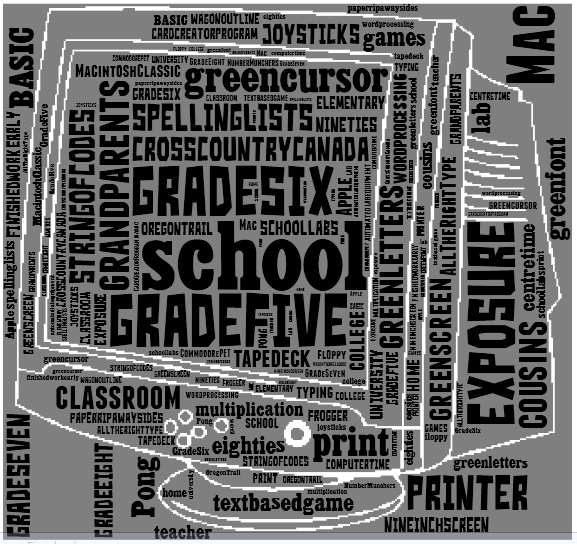Paul, R. (Executive Producer) & Petrina, S. (2002, October 11). The Magic Box: Technology in education (Sound Recording). Washington, D.C.: National Public Radio, Sound Prints.
Overview
In this audio recording the listener is asked to consider how the technology around us came to be… Can we remember or have we just accepted it as part of our culture? Richard Paul and Stephen Petrina, through their research and interviews with various people, lead the listener through the progression of the computer and its adoption into education. With the voice of insight and experience from both teachers and people in the sales industry, the computer is recognized as an instructional tool that benefits the learner just as Pressey had originally intended. The next question is – Where do we go from here?
Outline of Key People and Events
- Sidney Pressey – psychologist, Ohio State University: He wanted to see the conventional education system challenged through his machine – “Automatic Teacher” designed to accommodate individualized learning.
- Sage Air Defense System – U.S. Military: The first computer based training application was used and the movement towards computers in school was begun.
- Francis Keppel – Commissioner of Education, U.S. government: He was responsible for the Elementary/Secondary Education Act and sought out funding for technology education.
- Sylvia Sharp – teacher in Philadelphia School District: She was asked to oversee the use of technology in her school district and partnered with IBM.
- Computer Competition: IBM focuses marketing on administration and business office, while Apple targets teachers with their advertising.
- Liza Loop – Founder of Learning Options Open Portal: She opened the first public access computer centre and focused on computer education for children.
- Homebrew Computer Club – Standford University: At the Club people met to share and discuss the use of computers. It was here that networking begun between Apple’s Wozniak and Loop, and Apple donated computers to Loop’s Centre.
- Computer Race: With a growing interest in the use of computers in the classroom, companies start creating their own version of the instructional tool. Many failed in their attempts, but this also led to the innovation of others.
Additional Resources
The Automation of Education by Stephen Petrina (see Module 6)
Reading Response
1. While technology has changed over the years, purposes for its use and similar concerns remain regarding the use of computers in education. What are some of the purposes or concerns that are still the same today? Are they still valid? Which ones should be taken into consideration when planning for the use of technology? Write your response here.
2. Let’s take a poll and create a history of computer usage in the lives of ETEC 511 students… When was your first interaction with a computer? Please describe the setting, how you used the computer, and your reactions. Write your response on a sticky note and then post for the class to read. At the end of our module, we will create a Word Cloud summarizing our history of computer education.
ETEC 511’s History of Computer Education


Leave a Reply